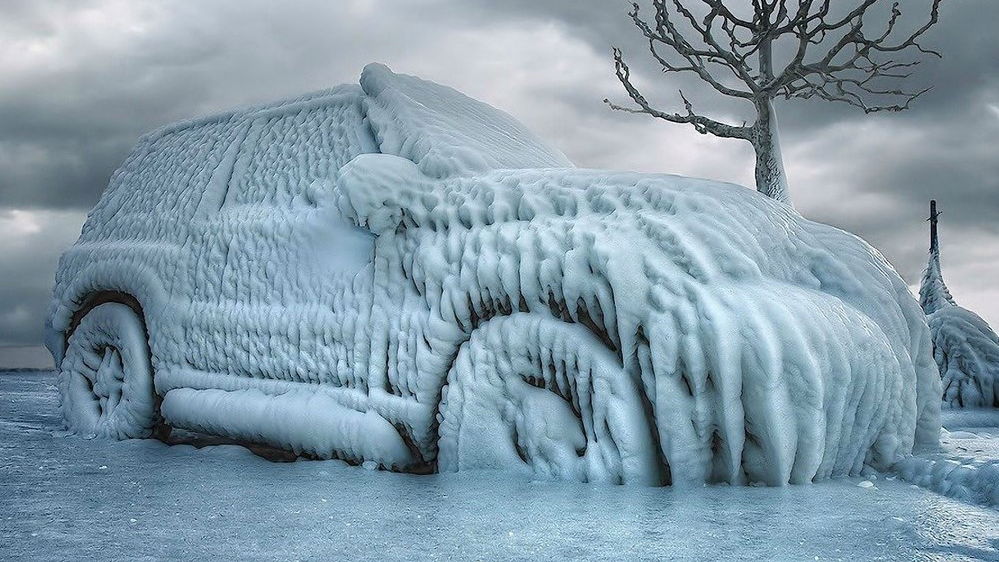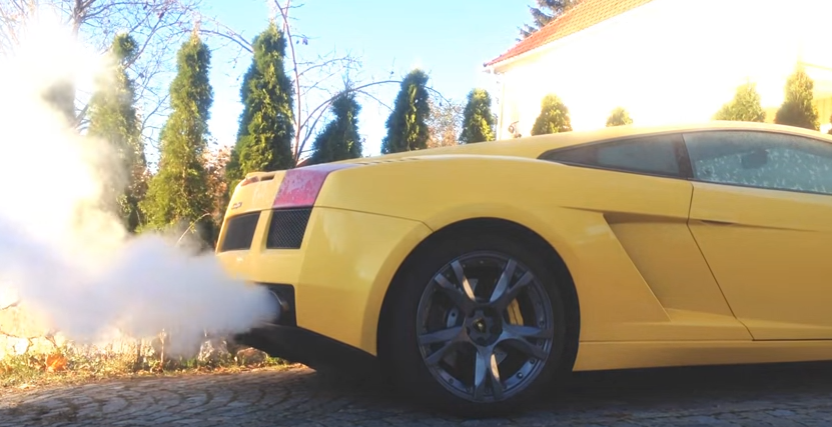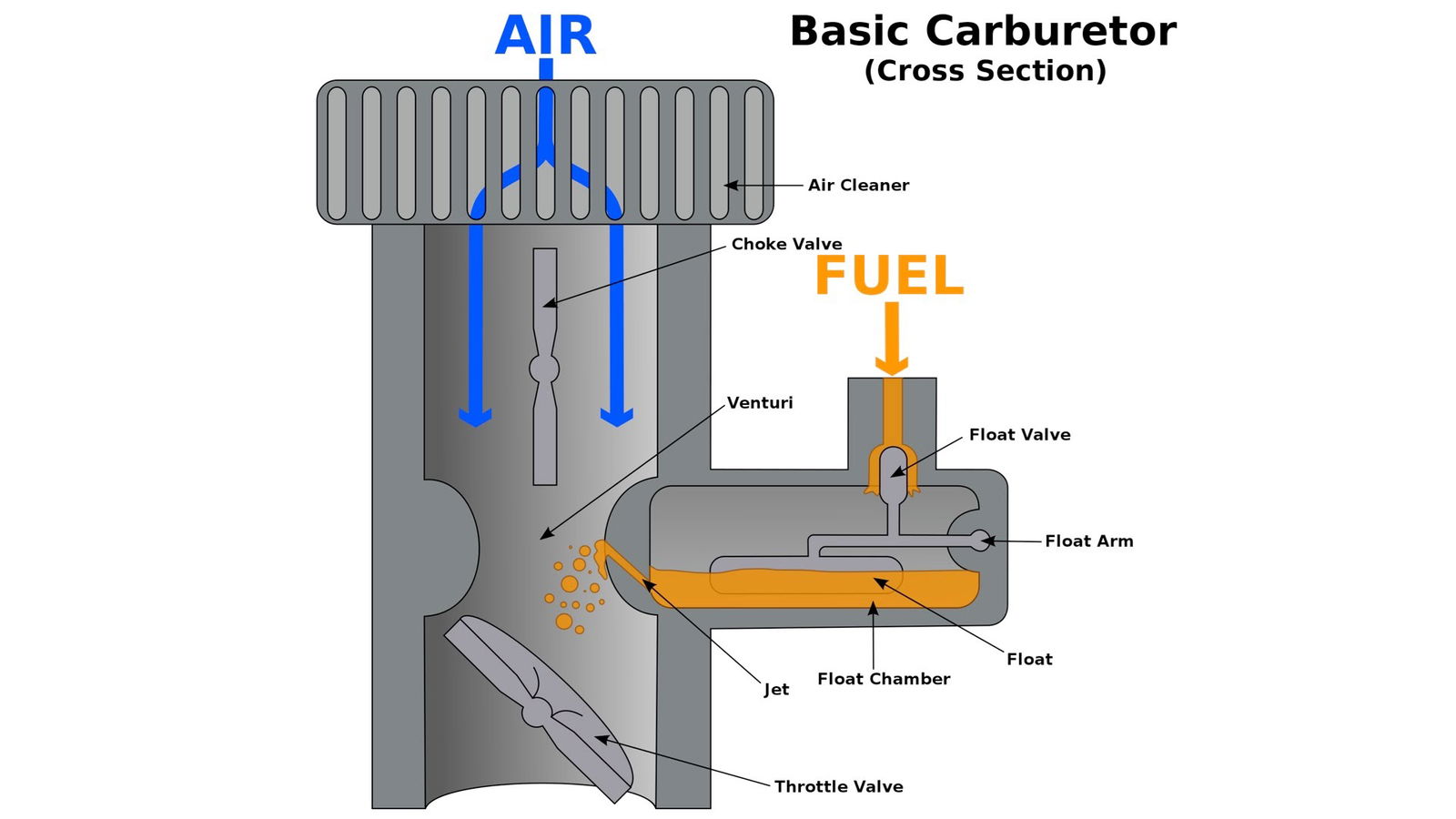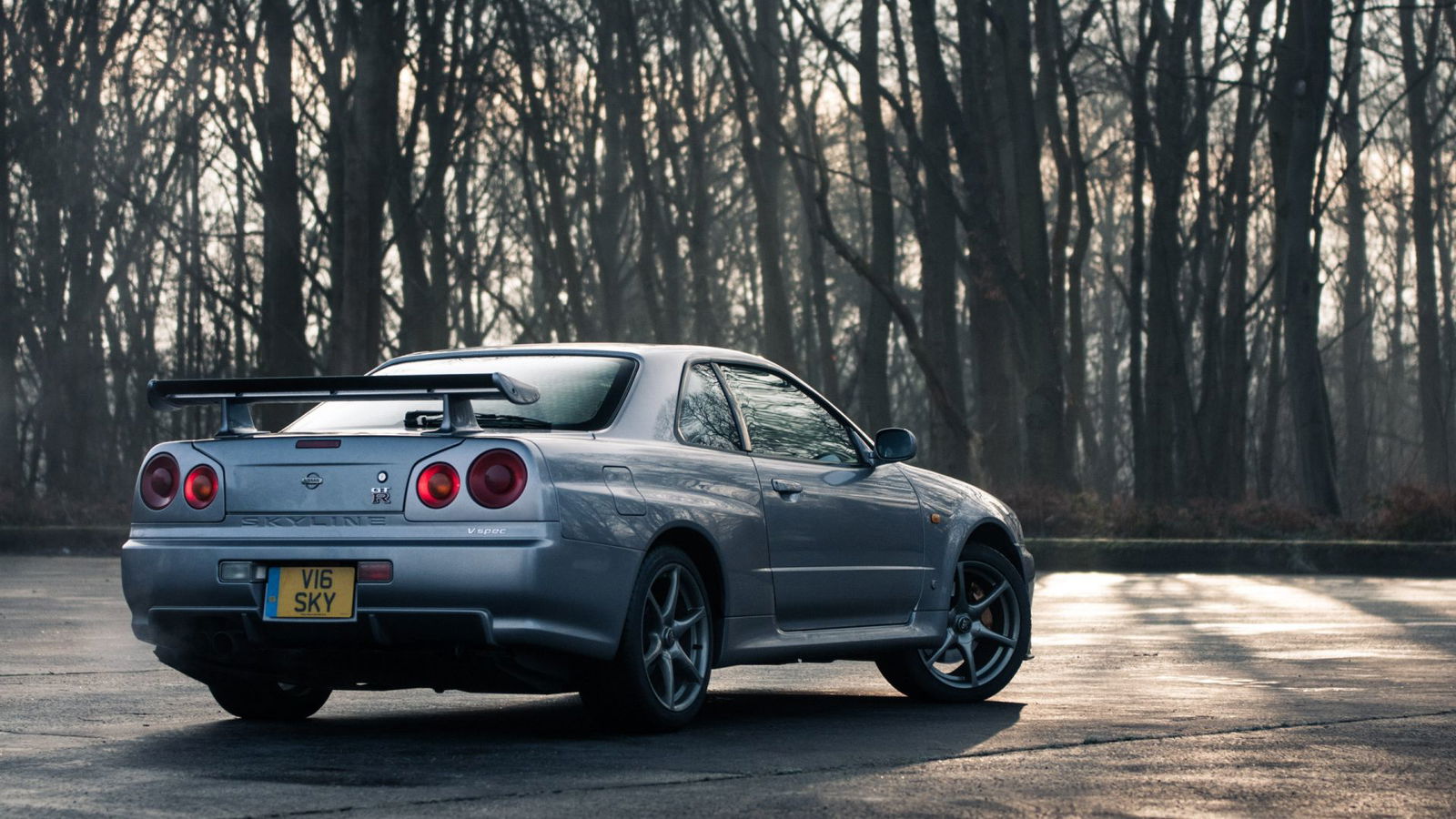This Is Why Cold Starts Are So Damn Loud

If it’s been a little while since you last drove your car, or if it’s frosty enough to dream of a heated steering wheel, your car might sound a little different to normal when you fire it up. A cold start can turn a humble hatch into a roaring monster truck, and something more powerful like a V8 Mustang can send shivers down your spine. Revel in the power (and the glares from the neighbours) for those few seconds, until the car starts idling normally again and you can set off.
The cold start is one of the greatest pleasures for any petrolhead to experience, but why does a car always sound especially fruity after it has been sitting dormant for a while, especially in cold conditions?
To start with, a car’s ECU decides that the engine has to idle higher when the engine is cold to stop it from stalling. This is programmed into the ECU via a start-up map, which allows a richer air/fuel mixture to enter the cylinders. Ideally, efficient combustion occurs at a higher temperature than that of the ambient temperature of a cold engine, where the fuel can vaporise naturally and be burned.
When it is cold, more fuel is added to the air/fuel mixture to make up for the lack of natural vaporisation. So the AFR (air-fuel ratio) is seen by the ECU to be leaner than usual (below the Stoichiometric ratio of 14.7:1) so it compensates for this with extra fuel to make up for the unburned fuel due to the cold.

Since this increase in fuel could potentially lead to a clogging of the ignition system and therefore an engine stall, the ECU increases the engine speed at initial idle to make sure that all of the excess fuel is being forced out of the cylinders quicker than normal. Once a desired engine temperature is reached, the idle speed will slowly descend to its usual value. The ECU does this by returning the AFR back to the Stoichiometric mixture for the engine, just like the choke on cars featuring carburettors. Any excess fuel that makes it to the exhaust system is generally vaporised by secondary-heated air it’s mixed with in the manifold, with this combustion helping to heat the catalytic converter from cold and amping up the volume for a cold start.
Bosch, a company that knows a thing or two about engine management - summarises it all nicely:
“Gasoline is less likely to vaporize when it is cold. Even if it is adequately vaporized, some fuel condenses on the cold parts of the engine before it can be burned. The engine requires extra fuel for starting so that, in spite of vaporisation and condensation problems, the engine still receives a combustible air-fuel mixture”.
The components within an engine will also naturally shrink ever-so-slightly as it cools down, therefore tolerances decrease and the engine can become ‘tight’ as components contract. The lubricating oil will also have increased in viscosity as it cooled, thus meaning that the components will be slightly less lubricated than usual. Therefore the additional engine speed implemented by the ECU allows the engine to produce an increase in torque through to the crankshaft, rotating the engine’s components and aiding them against the slight increase in mechanical friction caused by the tightness.
As mentioned earlier, before fuel injection became the norm for internal combustion engines, a choke valve was needed to create a richer AFR at start-up. Having to be manually operated when turning the key, the valve would close over the air inlet to the carburettor, thus ‘choking’ the AFR and creating a rich mixture to keep the engine from stalling. You would then have to gauge when the engine was warm enough to slowly open the valve back up again, allowing full airflow back into the carburettors. Thankfully, fuel injection systems have fully replaced carbs, so now the ECU does all that hard work for you.

Although it might wake up your neighbours in the morning – especially when coupled with a lack of exhaust-silencing – a cold start-up function within the ECU is a necessity in this day and age, seeing as we have abandoned the choke as a mechanical device. The cold winter months might be freezing, wet and a bit depressing, but cold starts can surely put a smile on the face of any true petrolhead, whatever the weather. Heck, it even provides a decent soundtrack while you de-ice your windscreen, so who can complain!

Comments
Coincidentally I’m in a place where its 18 degrees(usually 30 degrees),now I’m anxious to what my car would sound like although it’s a normal family car
I recently bought Audi A4 B7. For the past week when starting car after leaving it overnight, sometimes idle goes up to 1’500 and stays there for a while, sometimes it instantly goes down to 0’800. Should I be worried?
The temperatures in the mornings have been -5 -2 Celsius
My PS4 is also really loud on cold starts. I wonder if the same applies to it?
Subarus. Subarus everywhere
“When it is cold, more fuel is added to the air/fuel mixture to make up for the lack of natural vaporisation. So the AFR (air-fuel ratio) is seen by the ECU to be leaner than usual (below the Stoichiometric ratio of 14.7:1) so it compensates for this with extra fuel to make up for the unburned fuel due to the cold”
surely if there is more fuel and the AFR ratio goes under 14.7:1 then the engine is richer and so the ECU will not recognise it as a lean mixture.
That’s why my carb has an electric choke. I get to keep my carb simplicity and I don’t have to remember to choke or unchoke.
WHAT IS ECU? MY N13 Pulsar doesnt have any. you have to press the gas to keep it from stalling lol and YOU have to wait 10 minutes to warm up. Ahhhhhhhhhhhhhhhhhhhh
Am I the only one here that cringes at cold startups? I dislike the noise of my car trying to not-prematurely-wear-itself-out.
Sadly, I don’t have excellent cold starts like some of you do, because of my car (I live in North Dakota, so temperature isn’t a problem, and I have a 2004 Honda Pilot)
Now the real question: how can I get my car to “cold-start” at will?
Pagination